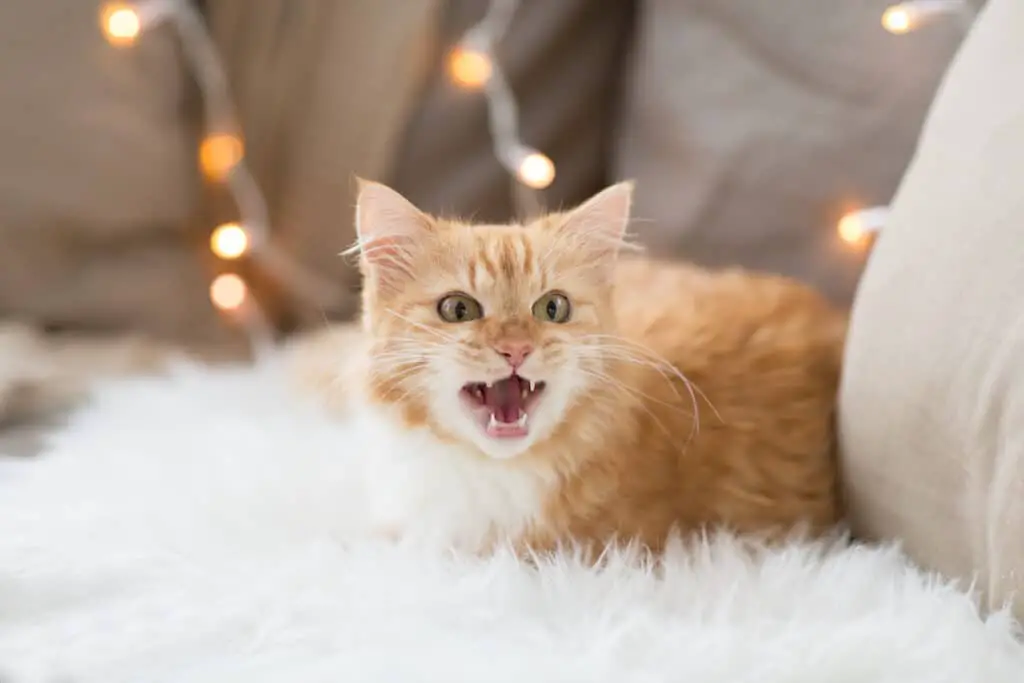If you have a particularly vocal kitty, you might be asking yourself “why does my cat meow so much?”. There are several reasons why cats meow (and don’t meow!). When they are kittens, they begin by meowing to their mothers when they are cold, hungry, or afraid. Little cats learn new ways to communicate and engage with other cats as they get older, mainly by yowling or hissing. However, adult cats use meowing to interact with humans. While chatting with your miniature tiger is delightful, the incessant meowing can be somewhat annoying.
1. Your cat wants attention.
The cat may be acting this way because it wants to play or is bored. Instead of responding to every meow from your cat, pay attention to them when they become quiet. If your cat continues to meow, step away until it stops. Excessive meowing calls for walking away, but make sure you interact with your cat each day (they are part of your family, after all). Additionally, playing with your cat gives them the necessary amount of activity for their health.
Continue rewarding restrained behavior while ignoring persistent meowing. It might still take some time to stop the noises, but rewarding your cat for being peaceful will help.
2. Your cat is sick.
Your cat might be attempting to inform you that they’re not feeling well by meowing, which is one of the ways cats communicate. Since cats are skilled at hiding ailments, meowing or making noise when not displaying an interest in food may indicate a serious health issue. Constant cat meowing could be a sign of a number of health concerns, including an overactive thyroid, kidney disease, trouble urinating, and many others. A trip to the clinic is worthwhile if this behavior is new for your cat.
3. Your cat is hungry.
Some cats may only meow when they need food or the litter box. Your cat will meow loudly to let you know if the food bowl is empty. Make sure your cat is eating regularly and in sufficient amounts. Additionally, check the water bowl while you’re at it.
4. Your cat is stressed.
Your cat could become stressed out due to changes in the house, new residents, new pets, or other factors. It could be a sporadic “I don’t like this” meow or a continuous, loud “I’m extremely mad about this!” noise if your cat is meowing a lot during these shifts. Your cat can’t tell you this, of course, so be aware of any changes that might frighten them and engage in as much interaction with them as you can. To prevent behavioral problems if you bring a new animal into your home, carefully socialize it with your cat.
5. Your cat is playful.
Have you ever heard of the zoomies? If you have a cat, you’ve definitely experienced them firsthand. Cats get riled up and feel playful at times. Meowing, sometimes loudly and excitedly, is a way for them to get out their playful energy.
You’ll noticed your cat sometimes meows just to hear their own echo (like down the basement stairs). This is just them creating their own form of stimulation for play.
6. Your cat meows because of old age.
Like people, cats can experience age-related forgetfulness or confusion. Your cat may meow in annoyance or confusion if they become disoriented, which is a typical occurrence. If your cat vocalizes at night or keeps running into things, leave a light on. Please visit the vet if your elderly cat is yowling loudly instead of just “talking” to you. Finding and treating the underlying cause can do much more for your cat than just give you back a good night’s sleep.
7. Your cat is in heat.
Female cats going into heat might suddenly become very loud. They do this in order to draw males. If they see a cat in heat nearby, males will also become boisterous. Have your daughter spayed to help both the overpopulation of cats and yourself.
Constant Meowing Can be Annoying and Disruptive
Some people don’t mind the constant meowing in the background. But if you’re like most people, having your cat meow so much is downright annoying.
We’ve curated articles on how to stop your cat from meowing so much and how to stop your cat from meowing at night.














